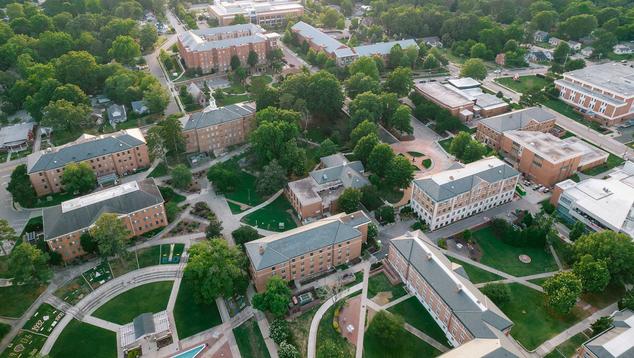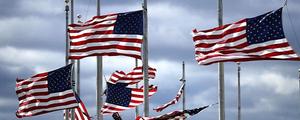WASHINGTON, D.C. -- An increasing proportion of U.S. adults say they have little or no confidence in higher education. As a result, Americans are now nearly equally divided among those who have a great deal or quite a lot of confidence (36%), some confidence (32%), or little or no confidence (32%) in higher education. When Gallup first measured confidence in higher education in 2015, 57% had a great deal or quite a lot of confidence and 10% had little or none.
The latest results are based on a June 3-23 Gallup survey that gauged Americans’ confidence in various institutions. A follow-up story reporting on the remainder of institutions will be published in the coming days.
This year, Gallup and Lumina Foundation partnered to better understand the nature of confidence in higher education. The research includes the trend results reported above from Gallup’s June telephone survey as well as new results from a contemporaneous web survey of more than 2,000 Gallup Panel members.
A review of the historical trends shows that confidence has dropped among all key subgroups in the U.S. population over the past two decades, but more so among Republicans. Americans who lack confidence in higher education today say their concerns lie in colleges pushing political agendas, not teaching relevant skills, and being overly expensive.
A separate article in the Gallup-Lumina series will report that Americans are significantly more confident in two-year colleges than four-year colleges when evaluating the two types of institutions separately.
Republicans’ Confidence Has Changed the Most
Confidence in higher education among Republicans today is nearly a mirror image of what it was nine years ago. In 2015, 56% of Republicans had a great deal or quite a lot of confidence, and 11% had little or none. Now, 20% are confident and 50% have little or no confidence.
Republicans are not alone in having reduced confidence in higher education, as 35% of independents, down from 48% in 2015, and 56% of Democrats, down from 68%, are confident.
In the past year, all party groups have shown at least some increase in the percentage with very little or no confidence, and a decrease in the percentage saying they have some. None of the party groups shows meaningful change in high confidence over the past year.

While Republicans’ attitudes toward higher education have changed the most in the past decade, all key subgroups are now less confident. The changes have generally been similar -- close to the 21-percentage-point drop nationally -- among different educational, racial, gender and age subgroups.
Confidence Rooted in What Colleges Teach, Opportunities They Provide
To better understand Americans’ attitudes toward higher education, survey respondents were asked to express in their own words why they are or are not confident in it. These open-ended responses were then categorized into larger themes.
The roughly one-third of Americans who have a great deal or quite a lot of confidence in higher education say they value education and the training and opportunities it provides as an explanation of their faith in the institution. Specifically:
- Twenty-seven percent of those who are confident in higher education say it is important for individuals and society to be educated.
- Nearly as many, 24%, comment on the opportunities postsecondary education affords for jobs or success in life.
- Slightly fewer, 19%, say they are confident because of the training higher education provides, such as thinking for oneself and respecting different points of view.
- Thirteen percent mention the quality of professors and administrators at colleges.
Perceived Political Agendas, Misplaced Teaching Focus Underlie Lack of Confidence
For the roughly one-third of Americans with very little or no confidence in higher education, perceptions that colleges are pushing certain political agendas or not teaching the right kinds of skills are at the forefront of their concerns.
Of Americans who lack confidence in higher education, 41% mention colleges being “too liberal,” trying to “indoctrinate” or “brainwash” students, or not allowing students to think for themselves as reasons for their opinions. Nearly the same percentage, 37%, are critical of higher education for not teaching relevant skills, for college degrees not meaning much, or for graduates not being able to find employment. Twenty-eight percent mention cost concerns, such as the price of a college education or high student debt levels.
Other, less-common reasons for not having confidence in higher education focus on the quality of teaching, political unrest, unequal access to college, and free speech issues.
A majority of Republicans who lack confidence in higher education, 53%, mention political agendas. Democrats who are not confident in higher education primarily cite the cost of it, while independents divide about equally between cost, political agendas and misplaced teaching focus.
Public Not Optimistic About Future of Higher Education
Americans, in general, do not believe that higher education is on a positive path, as 31% say it is headed in the right direction and 68% say the wrong direction.
As might be expected, nearly all of those who have little or no confidence in higher education, 94%, say it is headed in the wrong direction. However, so do 81% of those who have “some” confidence, and even 30% of those with a lot of confidence.
Sixty-nine percent of those who are confident believe instead that higher education is headed in the right direction.
Democrats (52%) and political liberals (49%), among key subgroups, are most optimistic about the direction in which higher education is headed. Other subgroups who are relatively more optimistic include young adults (40%), people of color (40%) and those with postgraduate education (40%).
Bottom Line
While the percentage of Americans who express a great deal or quite a lot of confidence in higher education stabilized this year after significant drops in the previous two measurements, there has been some shifting, with fewer having mixed views and more expressing little or no confidence in it. The story is largely a political one, with relatively few Republicans expressing confidence in colleges and universities, primarily because they feel colleges are pushing liberal political agendas on students. But the drop in confidence extends beyond purely political motives to questions about the relevance to the workforce of what students are being taught and the high cost of college. To the extent these views are held by parents and young adults, it could lead to drops in college applications and enrollment.
People who retain trust in higher education appear to be those who value education, generally, and believe that colleges set graduates up for success in the workforce. They also point to the quality of U.S. higher education system, often regarded as the best in the world.
Learn more about the Lumina Foundation-Gallup State of Higher Education study here.
To stay up to date with the latest Gallup News insights and updates, follow us on X @Gallup.
Learn more about how the Gallup Poll Social Series works.





